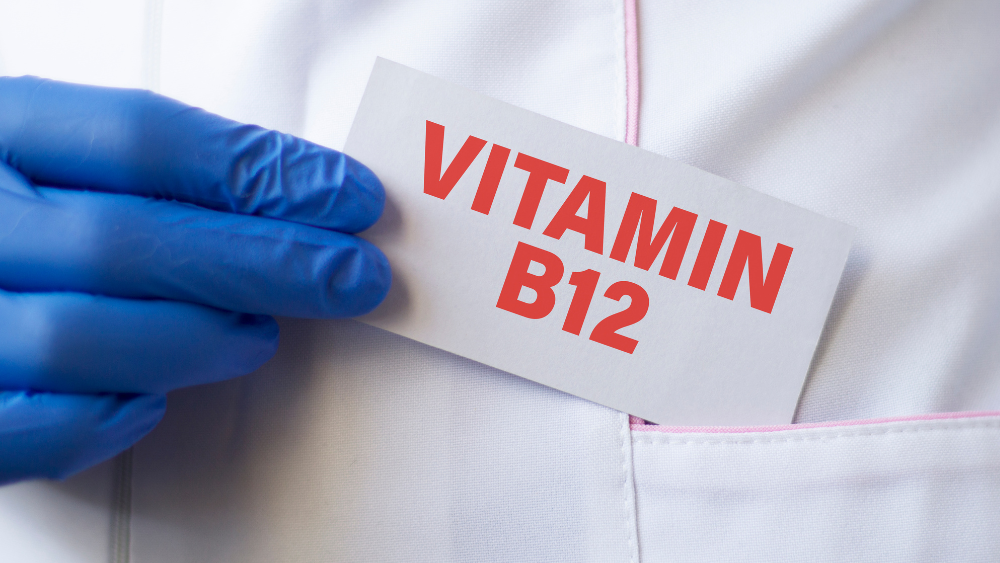Vitamin B12 plays a crucial role in keeping your body and mind healthy. It’s a water-soluble vitamin essential for nerve function, red blood cell formation, DNA production, and overall energy levels. Yet, B12 deficiency is more common than most people think — particularly among older adults, vegans, and those with certain medical conditions. Let’s take a closer look at what causes it, how to recognise the symptoms, and the best ways to prevent or correct a deficiency.
What Exactly Is Vitamin B12?
Vitamin B12 supports your body in several important ways:
- Nervous system support: It helps form the protective coating around your nerves (myelin sheath), keeping your brain and nerves functioning properly.
- Red blood cell production: It prevents anaemia and supports healthy oxygen transport throughout the body.
- DNA and cell health: It ensures cells divide and function as they should.
- Energy conversion: It helps turn the food you eat into usable energy.
A lack of vitamin B12 can cause fatigue, weakness, memory issues, and in severe cases, irreversible nerve damage.
Where to Find Vitamin B12
Vitamin B12 occurs naturally in animal-based foods such as:
- Liver and other organ meats
- Fish and shellfish
- Poultry and eggs
- Dairy products
Plant-based foods generally don’t contain active forms of B12. Vegans and vegetarians should consider fortified foods (like breakfast cereals, nutritional yeast, or plant-based milks) or B12 supplements to meet their daily needs.
How the Body Absorbs B12
B12 absorption depends on stomach acid and a special protein called intrinsic factor (IF). Without these, your body can’t properly absorb the vitamin.
Certain factors can reduce absorption, including:
- Age (especially over 50)
- Digestive conditions like Crohn’s disease or celiac disease
- Medications such as metformin or acid-reducing drugs
The good news is that the liver can store several years’ worth of B12, so deficiency often develops slowly over time.
Common Causes of Vitamin B12 Deficiency
- Pernicious anaemia: An autoimmune condition that prevents the body from producing intrinsic factor.
- Gastrointestinal issues: Surgeries or disorders that affect the stomach or intestines can interfere with absorption.
- Dietary deficiency: Common among people who avoid animal products or eat limited amounts of them.
Recognising the Symptoms
Neurological signs:
- Tingling or numbness in the hands and feet
- Difficulty concentrating or memory problems
- Poor balance or coordination
Physical signs:
- Tiredness and weakness
- Pale or yellowish skin
- Enlarged or inflamed tongue
- Anaemia
If left untreated, B12 deficiency can cause lasting nerve and cognitive damage — so early detection is key.
Diagnosing Vitamin B12 Deficiency
Healthcare professionals may use several tests to confirm a deficiency:
- Serum B12 test: Checks blood levels but may miss some cases.
- Methylmalonic acid (MMA): High levels indicate a true deficiency.
- Homocysteine: Can suggest low B12 or folate.
- Intrinsic factor antibodies: Help identify pernicious anaemia.
Treatment and Prevention
Supplements:
- Oral B12 (cyanocobalamin or methylcobalamin): 500–2,000 mcg daily.
- Injections: Often recommended for those who struggle to absorb B12 naturally.
Dietary Tips:
- Eat B12-rich foods like fish, chicken, eggs, and dairy.
- Vegans should include fortified foods or take a reliable supplement.
Best Practices:
- Take B12 in the morning with other B vitamins to boost energy.
- Limit alcohol and antibiotics when supplementing, as they can affect absorption.
Maintaining Healthy B12 Levels
- Monitor medications that may interfere with absorption.
- Schedule regular blood tests, especially if you follow a vegan diet or are over 50.
- Follow a balanced diet that includes fortified foods or animal proteins.
The Bottom Line
Vitamin B12 is vital for energy, brain function, and overall health. Deficiencies are common but entirely preventable with the right nutrition and supplementation. If you’re feeling unusually tired, forgetful, or weak, it’s worth checking your B12 levels. Speak to your healthcare provider or one of our pharmacists for advice on the best B12 supplements for your needs.

